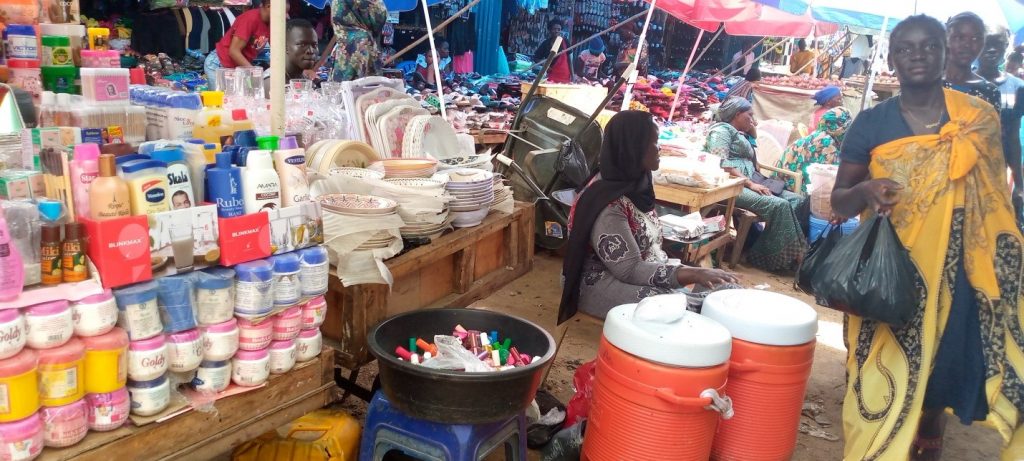
By Taban Henry
Traders in Konyo-Konyo market are accusing South Sudan Islamic Council for imposing multiple tax collections amid Juba City Council’s responsibility.
On Thursday, Chamber of Commerce in Central Equatoria State paid a courtesy visit to markets within Juba where traders raised their grievances and mentioned the engagement of Islamic Council in tax collection.
The State’s Chamber of Commerce visited the market amidst challenges faced by traders in the city; markets visited included; Suk Libya, Customs, Jebel, Konyo-Konyo and finally Juba market.
Sadia Awas, a business woman from Konyo-Konyo market said that the Islamic Council do close their shops claiming that they want money.
The traders said that if they did not give them the money, their shops cannot be opened, yet city council also needs money.
However, the business woman stated that, sometimes back Juba City Council warned the Islamic Council not to enter in Konyo-Konyo market and collect tax.
“The money taken from us is more that the profit that we are supposed to get, all this money is taken and we are left without and we are complaining because taking care of children, paying their school fees, feeding. These people do not completely listen to our complain,” Sadia said.
In addition, Mama Sadia Awas said money being collected by different authorities such as immigration and the security once they are offloading their goods from the tracks into their shops.
She argued that over 10 security personnel as well as immigration officers can appear asking for money.
“All that we are bringing we pay immigration since from Nimule and all our goods are entering into the system with all the papers and still, they will ask the total of the goods entering into our shops. The governments don’t us the women in business chances to enter the offices of immigration door by door so clearance agency is the one moving we sometimes realized that we are given letters,” she said.
Another business woman, Yaya Eunice Hamza Bilal also vending at Konyo-Konyo market stated that their problem is always the city council and the Islamic Council who always collect taxes from them.
She said that once they failed to pay, their shop can be closed, arguing that they don’t know whether responsibility of Konyo-Konyo market belong to the city council or Islamic council.
The traders stated that, that is what they wanted the government to explain to them to whom should tax be paid.
“Currently the city council has two charges, they might come and ask us to pay 50,000SSP, this a mount is payable for no best reason, I don’t know whether it is planned at night or what I don’t know and if you don’t the shop is closed. We don’t know is there cooperation between the City Council and the traders,” Eunice stated.
She cautioned city council saying they need to know amount of mockney which is supposed to be paid per traders, and whether they perform their work without traders in the market.
Nevertheless, Ms. Yaya Eunice suggested that traders should pay money in the bank not in the hand of individuals.
“City Council are disturbing them, they come every day saying this place is dirty charges is 150,000SSP that you don’t talk so if you raise an alarm, they will say if you have 100,000SSP give us. We are tired of such charges,” she said.
Moreover, the chairperson of chamber of commerce in Central Equatoria State, Robert Pitiya Francis asked Islamic Council not to take money from traders.
He stated that they had no legal mandate to collect money from traders in the market, saying once they close the shop it must be broken.
“You still have your problem with the city council after solving it, we shall sit down so that people see how the agreement will and from now no one should pay his money to the Islamic Council. We understand that Islamic Council is a religious denomination and we respect and religion but one as an individual should use the religion in order to collect money from people. Let us respect ourselves,” he said.



